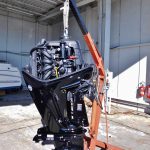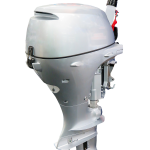
Hydronic heating is one of the simplest and most efficient heating systems available today. As you may already know, hydro simply means water. Therefore, hydronic heating is a system which uses water as a heat transfer medium.
Design and Operation
The system consists of a water heater, circulator, distribution piping and radiators. The water heater may be located outdoors and may use coal, heating oil, propane or electricity to generate heat. Hot water from the heater is led to radiator panels in different parts of the room via distribution piping. The radiator can be installed on walls and under the floor. After passing through the radiators, hot water is taken back to the water heater for further heating in preparation for another cycle. The entire system is completely sealed and insulated to minimize heat loss and improve the efficiency of the system.
Benefits of Hydronic Heating
This type of heating has many benefits including:
i) Quiet Operation
The system does not have any rotating or moving parts. Water moves through the distribution piping quietly, so you can heat your home quietly. Other heating systems have fans and blowers to move heated air through ducts and circulate it around the room. These rotating parts make a lot of noise which can make your home uncomfortable.
ii) Healthy Operation
You probably already know that the quality of air inside a building is worse than outdoor air. What makes matters worse is the forced movement of air, which forces dust, fur, fibers, pollen and other impurities inside the building to become airborne. With hydronics, there is no forced movement of air to heat a room, so this type of heating is much safer and healthier.
iii) Versatility
Hydronic heaters offer a great deal of versatility in that a single heating system can be used to provide hot water for bathing, pool heating and space heating. Therefore, you do not need to install a separate water heater in your home.
iv) Unmatched Comfort
Hydronic heaters offer unsurpassed comfort. Properly-designed systems not only control air temperatures but also surface temperatures to offer optimal comfort. It is also much easier to control humidity in a room heated by a hydronic heater than a force air system.
v) Energy Efficient
The rate of heat loss in a building is affected by pressure differences inside and outside the room. In a forced air heating system, there are usually high and low pressure zones. The former allows heated air to escape to the outside while low pressure zones suck-in cold air from outside. With hydronic systems, there is even pressure distribution inside the room, so there is very little heat loss, which contributes to the high energy efficiency of the system.


